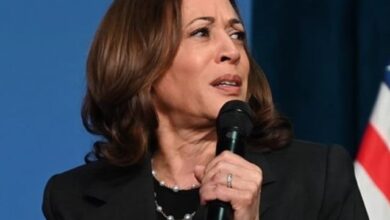Hasan Piker, a prominent figure in progressive politics and a major influencer among young, left-leaning voters, has expressed growing concerns about Vice President Kamala Harris’ approach to the 2024 presidential race.
In an interview with Newsweek, the Twitch streamer and political commentator explained that while he initially supported Harris’ campaign, he now feels that her shift toward centrist policies could jeopardize her chances in the election. According to Piker, Harris’ choice to adopt moderate stances, particularly on hot-button issues like immigration, risks alienating the Democratic Party’s progressive base—a key demographic, especially among younger voters.
Piker pointed out that Harris initially made promising moves by selecting Tim Walz, the progressive governor of Minnesota, as her running mate, which many saw as a signal that the campaign would embrace more progressive policies. However, Piker fears that her strategy has since drifted away from these ideals, leaving a gap in the enthusiasm that had built up among young and progressive voters. He believes that Harris needs to channel a campaign message reminiscent of Barack Obama’s 2008 run, centered on “hope and change,” in order to resonate with voters looking for a clear departure from the current political status quo.
One of Piker’s main critiques of Harris’ campaign is her stance on immigration. He argues that both Harris and the Democratic Party as a whole have moved too far to the center on this issue, with policies that closely resemble those of Donald Trump’s administration. For Piker, this not only undermines the progressive vision but also risks handing Republicans an opportunity to sway disillusioned voters. He expressed his frustration that the Democratic Party appears to be compromising on core issues in an effort to appeal to centrist or right-leaning voters, rather than championing the policies that energized its base during previous elections.







